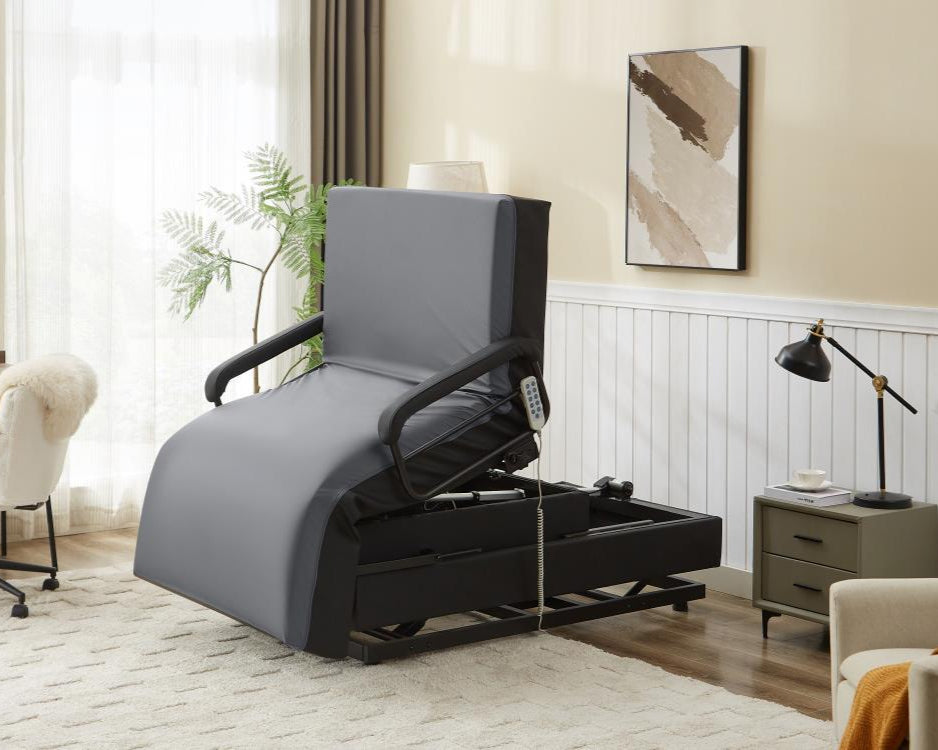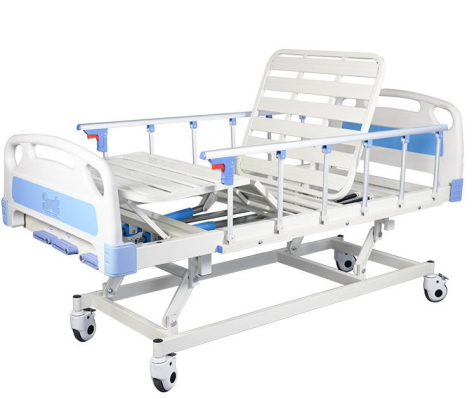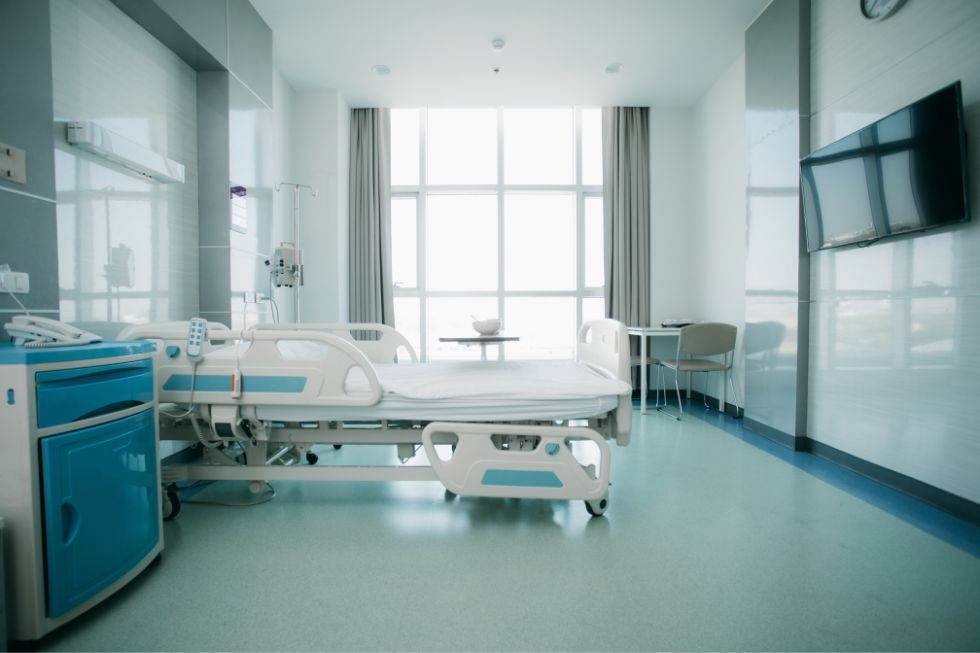Everything about Hospital Beds For Home Use
Table of ContentsSome Of Hospital Beds For Home UseThe Of Hospital Beds For Home UseNot known Incorrect Statements About Hospital Beds For Home Use Getting The Hospital Beds For Home Use To WorkHospital Beds For Home Use Things To Know Before You BuyThe Definitive Guide to Hospital Beds For Home UseOur Hospital Beds For Home Use PDFs
There are 3 major types of healthcare facility beds: guidebook, semi-electric, and fully-electric. These beds make use of hand cranks to readjust the bed's height and raise and reduce the head and the foot.
Semi-electric beds have an electrical motor to increase and decrease the head and foot portions of the bed. Individuals and caregivers readjust the placing by pushing switches utilizing a hand necklace. The elevation of the bed is readjusted manually with a hand crank. Full-electric beds have an electrical motor that can elevate the head and foot areas of the bed in addition to the whole height and positioning of the bed.
A Biased View of Hospital Beds For Home Use
Some designs can also relocate right into even more placements, such as the Trendelenburg (tilt) setting. There are numerous kinds of health center beds, each designed to meet specific person demands. Here are some common kinds: This is one of the most typical kind of health center bed, created for basic medical use. It has a handbook or electrically flexible headrest, foot rest, and elevation.
Lower to the ground than a conventional bed. This type of bed is developed for bigger people, with a wider frame and greater weight capability than a basic bed.
This sort of bed is made for seriously sick individuals who need open tracking and specialized medical equipment such as ventilators and infusion pumps. This sort of bed is created for use during labor and delivery, with flexible positions and functions to sustain the mother and child throughout the birth procedure.
How Hospital Beds For Home Use can Save You Time, Stress, and Money.
Multiple function and the devices perform broadening grip to different components of the vertebra and the extremities without relocating the body. These are simply a few examples of the kinds of health center beds offered. The specific sort of bed made use of will depend on the individual's condition, medical needs, and other factors.
Below is the important things you need to understand. A one-function healthcare facility bed is a medical bed that allows a person to relocate just the head or foot area up or down. A 2 feature hospital bed typically describes a kind of clinical bed that has 2 adjustable functions to assist individuals in hospitals or care facilities.

Getting My Hospital Beds For Home Use To Work
A 7-function ICU bed is a kind of clinical bed that offers numerous flexible features to sustain seriously ill patients in a critical care unit (ICU) (hospital beds for home use). The 7 features generally include: Back-rest adjustment: The back-rest can be adapted to various angles to assist the individual stay up or relax pleasantly
Elevation change: The bed can be raised or lowered to make it easier for patients to enter and out of bed, and for caregivers to supply care. Trendelenburg setting: The i was reading this entire bed can be tilted to promote blood flow and circulation in the body. Reverse Trendelenburg placement: The bed can additionally be slanted in the opposite direction to promote blood circulation and flow in the upper body.
While even more budget-friendly my sources than electric designs, these beds need exertion for changes. The primary benefits of hand-operated beds are their affordability and integrity, as they don't rely upon electricity. Nonetheless, the need for hands-on initiative can be a restriction in circumstances where quick changes are needed or where caregivers face physical challenges.
The Best Strategy To Use For Hospital Beds For Home Use
Semi-electric medical facility beds offer an equilibrium of guidebook and electrical controls. These beds supply an ideal middle ground between manual and totally electrical options, supplying simplicity of usage without the full expense of electric models.
Semi-electric beds are fit for people who require moderate adjustments to the head and foot areas however can take care of without constant height changes. This makes them a cost-efficient service for those looking for convenience and benefit without the requirement for constant repositioning. Completely electrical health center beds include electrical controls for smooth modifications to the height, head, and foot areas.
Specialized healthcare facility beds, such as ICU beds, lasting treatment beds, and bariatric beds, are carefully developed to attend to particular clinical demands. These beds provide customized take care of varied individual groups, enhancing both results and convenience. In the adhering to areas, we will certainly check out the major kinds of specialized health center beds, detailing their specific benefits and applications.
With years of experience in producing electric linear actuators - hospital beds for home use and close partnership with the health care market, TiMOTION is well-positioned to supply trustworthy health care remedies. Our vertically incorporated business handles every action of the manufacturing procedure, from layout to actuator setting up, guaranteeing we deliver outstanding worth and tailored services customized to your particular demands
9 Easy Facts About Hospital Beds For Home Use Explained

To read more about integrating these modern technologies right into your products, call us today. More analysis:.
Data is sourced from the Medicare Cost Report.

Rumored Buzz on Hospital Beds For Home Use
A hospital bed is a bed created particularly for clinical functions. It is not just an area for clients to rest, but also a system for medical procedures. Unlike ordinary home beds, healthcare facility beds generally have flexible attributes, which can promote medical staff to make numerous modifications according to the requirements of clients, such as transforming the elevation, inclination, and support angle of the back and legs of the bed.